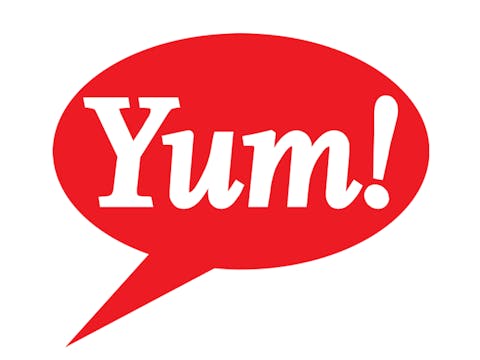Yum! Brands, Inc. (NYSE:YUM) reported an adjusted earnings per share of $0.69 after-hours today for its second quarter, which ended June 30. Although down from the $0.73 per share profit of the company in the same quarter in the 2014 fiscal year, the earnings still beat Wall Street expectations of $0.63 per share. Revenues were reported to be $3.11 billion, down from $3.20 billion in the same quarter last year, and below consensus estimates of $3.19 billion. “EPS exceeded our original expectations in the second quarter and I’m pleased with the continued progress we are making in China, as well as the performance from our Taco Bell and KFC Divisions,” CEO Greg Creed said in a statement. Yum! Brands, Inc. (NYSE:YUM) has battled supplier fiascos in the country and investors were looking forward to the company’s results in China this quarter. Particularly, activist Keith Meister of Corvex Capital should be keenly interested in Yum’s Chinese performance, as he made a massive investment in the company’s shares in the second quarter and expressed his desire to see it sell off its operations in that country.
For the China division, as expected, numbers were down. Same-store sales declined by 10% compared to robust 15% growth a year ago, restaurant margin fell to 14.6% from 16.8%, and operating profit slid to $144 million from $194 million. “I’m confident we will deliver full-year EPS growth of at least 10%, driven by a strong second half in China and solid brand-building initiatives underway at each of our divisions,” Creed said. Things looked better, however, looking at the individual brands that make up Yum! Brands. The KFC division grew restaurant numbers to 14,234 from 13,906 in the same quarter last year. Sales increased by 6% overall, as same store sales grew by 3% versus 2% growth in the same quarter last year. Restaurant margin also grew to 15.3% from 12.9%, though operating profit decreased slightly to $152 million from $155 million, partly due to foreign exchange headwinds. For the entire company, foreign exchange headwinds impacted operating profit by $22 million, the firm said.
For the Pizza Hut division, things seem a bit bleaker, as while restaurants increased to 13,579 from 13,338 year-over-year and sales increased by 1%, there was no reported same-store sales growth. Restaurant margin increased to 9.9% from 7.2%. but operating profit dropped to $60 million from $63 million and operating margin fell to 22.6% from 23.5%. As for the Taco Bell division, stores increased to 6,257 from 6,074 while there were also 9% sales growth and 6% reported increase in same-store sales. Franchise fees were up to $106 million from $97 million. Restaurant margin grew significantly to 23% from 17.7%. The same story can be seen in operating profit and operating margin, which grew to $140 million from $109 million and to 29.5% from 24.8%, respectively.
The Yum! Brands, Inc. (NYSE:YUM) beat appears to have been predicted by hedge funds we track, as among those hedge funds in our database that had long positions in the company on March 31, the total value of their holdings soared by 81.83% to $1.49 billion, compared to three months earlier. This is a significant increase, even accounting for the 8.06% share price growth in the first quarter. The stock grew another 14.43% in the second quarter. Yum was also in 45 hedge funds’ portfolios at the end of March, up from 38 hedge funds at the end of the previous quarter.
Of particular note in the bullish smart money story on Yum! Brands, Inc. (NYSE:YUM) is activist investor Keith Meister of Corvex Capital. Based on our data, Keith Meister bought 856,500 shares valued at about $67.42 million, a new position, in the first quarter. However,in May, Meister revealed at the Ira Sohn Conference that Corvex Capital then owned about $1.5 billion worth of Yum! Brands, Inc. (NYSE:YUM) shares, making him the largest shareholder of the firm among the funds we track. The very outsized position compared to his peers signifies just how bullish the respected activist is on Yum.
Meister is advocating that Yum! Brands, Inc. (NYSE:YUM) spin off its embattled China business. If the firm does this, he said at the Ira Sohn Conference that he thinks the stock has a potential 50% to 90% upside. The whole business has a potential value range of $130 per share to $160 per share, he said at the time, with the franchise company worth $90 per share and the business to be spun off worth $70 per share. The activist believes Yum has a remarkable lead against its rivals in terms of being first in China. Meister said that he thinks KFC will rebound in the country, as it is a very serious brand there.
Follow Keith Meister's Corvex Capital
Following activist funds like Corvex Capital is important because it is a very specific and focused strategy in which the investor doesn’t have to wait for catalysts to realize gains in the holding. A fund like Meister’s can simply create its own catalysts by pushing for them through negotiations with the company’s management and directors. In recent years, the average returns of activists’ hedge funds has been much higher than the returns of an average hedge fund. Furthermore, we believe do-it-yourself investors have an advantage over activist hedge fund investors because they don’t have to pay 2% of their assets and 20% of their gains every year to compensate hedge fund managers. We have found through extensive research that the top small-cap picks of hedge funds are also capable of generating high returns and built a system around this premise. In the 34 months since our small-cap strategy was launched it has returned over 135% and beaten the S&P 500 ETF (SPY) by more than 80 percentage points (read more details).
Insider purchases or sales of shares is another area Insider Monkey looks at. This gives us a peek into whether companies have insiders which are confident in their shares. For Yum! Brands, Inc., however, there were no purchases by insiders recorded in the first half of 2015. The latest sale was made by Chief Public Affairs Officer David Blum on July 1, when he sold 1,878 shares.
Keeping these elements in mind, we’re going to review the recent activity surrounding Yum! Brands, Inc.
Hedge fund activity in Yum! Brands, Inc. (NYSE:YUM)
Heading into the second quarter, a total of 45 of the hedge funds tracked by Insider Monkey were bullish in this stock, an increase of seven from the close of the fourth quarter.
When looking at the hedgies followed by Insider Monkey, Third Point, managed by Dan Loeb, held the largest position in Yum! Brands, Inc. (NYSE:YUM) at the end of the first quarter. Third Point had a $259.8 million position in the stock made up of 3.3 million shares, comprising 2.4% of its 13F portfolio. Sitting in the number two spot was Emerging Sovereign Group, managed by J Kevin Kenny Jr., which held a $247.2 million position of 3.14 million shares; the fund had 8.8% of its 13F portfolio invested in the stock. Some other hedge funds that were bullish contain Doug Silverman and Alexander Klabin’s Senator Investment Group, and Keith Meister’s Corvex Capital. It should be noted, however, that since Meister has revealed that Corvex owns about $1.5 billion worth of Yum shares as of May, his hedge fund is now the largest shareholder of the firm among hedge funds we track based on the available data.
As one would reasonably expect, key hedge funds have jumped into Yum! Brands, Inc. (NYSE:YUM) headfirst. The aforementioned Third Point established its Yum! Brands, Inc. (NYSE:YUM) position entirely in the first quarter, as did the aforementioned Emerging Sovereign Group and Corvex Capital. Other funds which had new Yum positions are Benjamin A. Smith’s Laurion Capital Management, which bought 587,945 shares worth about $46.28 million, and Barry Rosenstein’s JANA Partners.
The very bullish sentiment, particularly from Corvex Capital and Keith Meister, as well as the beat for the second quarter, which may be evidence of the company having weathered the crises it was subjected to in China recently, make us think a long position on Yum! Brands, Inc. (NYSE:YUM) is a good position at the moment. Corvex’s position in the company is also likely to put pressure on the fast food giant to separate its China business or greatly improve its performance in the country, which would unlock further value.
Disclosure: None





